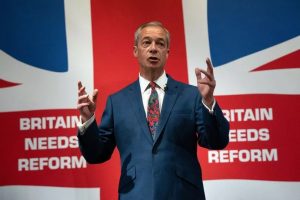
The snap general election called by Rishi Sunak for July 4th has proven to be a lacklustre affair, with the first 12 days of the campaign generating little more than yawns and eye-rolls from an increasingly disinterested electorate. The Conservative Party’s attempt to jazz things up with a National Service gimmick fell flat, failing to resonate with the public or inject any real excitement into their campaign.
Meanwhile, Labour leader Keir Starmer has struggled to make a memorable impression. His vague positioning and lack of clear direction have left many wondering what he truly stands for. This uncertainty has been compounded by the re-emergence of the divisive figure of Diane Abbott, whose presence has only served to undermine Starmer’s authority. While Starmer’s efforts to distance himself from Abbott’s controversial legacy may be commendable, the situation was further complicated when his deputy, Andrea Rayner, publicly sided with Abbott. This internal discord has painted a picture of a Labour Party still wracked by infighting and factionalism, reminiscent of its past struggles.
Enter Nigel Farage, the perennial firebrand and populist champion, who has dramatically taken the helm of Reform UK from Richard Tice. Farage’s decision to stand in Clacton—a constituency with a rich history of supporting UKIP under Douglas Carswell—has electrified the race. The current MP, Giles Watling, who once enjoyed a comfortable 22,000 majority, now faces the very real prospect of being unseated. Polls as far back as February hinted at this potential upheaval, but Farage’s entry has turned what was a speculation into a palpable threat. 
Farage’s return promises to inject much-needed vigor into the campaign. His knack for tapping into the frustrations and desires of the “ordinary man and woman on the street” stands in stark contrast to the bland offerings from the main parties. His focus on clear, contentious issues such as immigration and opposition to woke ideologies resonates with a segment of the electorate that feels increasingly ignored and alienated.
In stark contrast, the Conservatives seem to be coasting on their complacency, and Labour remains mired in its internal battles and identity crises. Sunak’s party, now viewed by many as out of touch and self-serving, is ripe for a drubbing. Meanwhile, Starmer’s Labour fails to present a unified front or a compelling alternative, plagued by old wounds and new betrayals.
As the campaign trudges on, the ordinary voters are left yearning for a voice that truly speaks to their concerns and passions. Farage, with his trademark blend of populism and provocation, seems poised to fill that void. Whether one views him as a saviour or a rabble-rouser, there’s no denying that his presence will transform the election from a drab procession into a vibrant, contentious contest.
In the coming weeks, all eyes will be on Clacton and beyond, as Farage aims to reignite the spark of grassroots rebellion. For a country tired of political platitudes and business-as-usual, this election might just become the thrilling rollercoaster ride it desperately needs. The stage is set for fireworks, and it’s Farage who is ready to light the fuse.
As he is standing in my constituency, the current incumbent, Giles Watling, must feel as if the bottom of his world has fallen today. A very healthy 22K majority in the last election, is now looking at being wiped out.